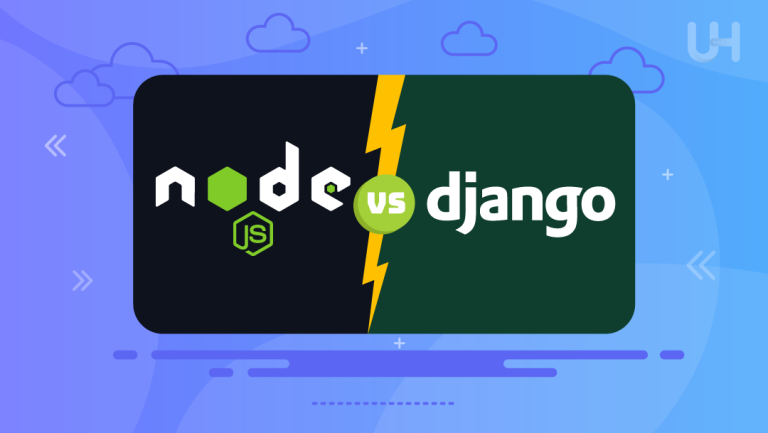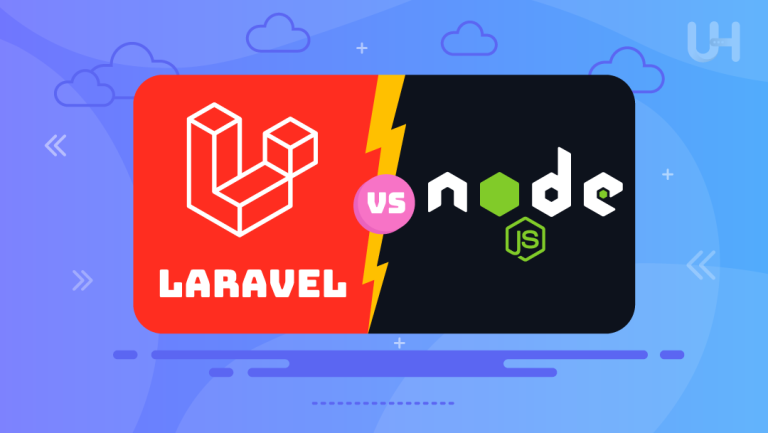Runtime environment selection is one of the crucial factors in building solid backend infrastructure. Two popular JavaScript runtime environments, Deno vs Node, offer distinct features and benefits, making them suitable for different use cases. Each has powers and, therefore, requires an in-depth look into its capabilities, limitations, and use cases while choosing between them.
In this article, we explore the differences between Deno vs Node, analyze their features and performance, and discuss when to use either choice so that you can make an informed decision about which tool best suits your backend needs.
What is Deno?
Deno is a V8-powered security-first JavaScript/TypeScript runtime from Ryan Dahl, the creator of Node.js. Upon its release in 2020, it fixed several problems related to security and dependency management that it had identified in Node.js. Developers were supposed to find it much more contemporary.
Key Features
- TypeScript support: TypeScript is supported out of the box without any further configuration.
- Security by Default: Deno is sandboxed, and it requires explicit permission for file, network, and environment access.
- Decentralized package management: Deno does not rely on npm. It can import modules directly using URLs.
- Simple Dependencies: Deno uses ES (ECMAScript) modules that allow for clean, modern import syntax.
- Built-in utilities: Deno has built-in utilities such as the linter, formatter, and testing framework that lessen the necessity to keep extra packages around.
- Single executable: Unlike Node.js, Deno compiles into one executable, making distribution and deployment easy.
- Standard library: Deno has a Standard Library, which includes a set of utilities needed when developing for the web, among many other things.
What is Node.js?
Node.js is a JavaScript runtime that allows developers to execute JavaScript code outside of the browser. Since its release in 2009, Node.js has become an overnight sensation and a cornerstone of server-side JavaScript framework development. It introduced the possibility of using JavaScript for full-stack developers to develop applications. It hosts millions of packages and libraries, making it highly flexible and extensible. Node.js enjoys a big ecosystem powered by npm or Node Package Manager.
Key Features
- Asynchronous and event-driven: Node.js is designed to be asynchronous and event-driven, based on an event-driven, non-blocking I/O model. This makes it efficient for handling more requests.
- Vast npm ecosystem: Hosting more than 1.3 million packages, npm is the biggest software registry ever. Therefore, it offers an immense number of modules and tools at the developer’s discretion.
- Single-threaded but highly scalable: Although Node.js is single-threaded, its architecture allows it to handle many connections without any performance bottlenecks.
- Cross-platform: Node.js runs on major platforms, from Linux and Windows to macOS, making it compatible with various environments, including Mac VPS and Linux Server setups.
- Rich tooling support: Much tooling is available for testing, debugging, monitoring, and deployment.
- RESTful API development: Node.js has also become very popular for implementing RESTful Application Programming Interfaces. Using different frameworks, such as Express.js, makes creating web applications quite easy.
Deno vs Node js: Comparison

Now that we have discussed the core features of both Deno vs Node, let’s compare them on several aspects to understand their strengths and which might be better in which scenarios.
Security
A critical difference between Deno and Node.js is security. As by the design, Deno is such that it does not grant any access to the file system, network, or environment variables unless explicitly allowed by a developer. That default security layer makes a malicious script unable to execute an action not intended by the person.
Opposite to that, Node.js does not have any built-in security sandbox. By default, a Node.js application enjoys full access to the filesystem and other resources. It is highly vulnerable to security-related issues. The developers have to look outside for utilities and libraries to manage security in Node.js.
TypeScript Support
Due to its static typing, TypeScript has gained more traction in the JavaScript ecosystem because it helps to prevent bugs and enhances code maintainability. Therefore, Node.js can run TypeScript only with third-party tools like ts-node or compilers. By default, Deno supports TypeScript out of the box. With this native integration, development in Deno is just getting easier, most especially in teams that have used TypeScript as their language of expression.
Package Management
Node.js relies heavily on NPM, the major package manager for JavaScript applications. NPM centralizes all the dependencies in one place. Although it is convenient, it comes with its own set of challenges, such as bloated node_modules folders and the need for third-party tools such as Webpack or Babel to get modern JavaScript features.
Deno is different in that aspect since it takes a distributed approach to package management. It does not have a package manager like npm. The developer imports modules directly via URLs, and Deno caches them locally. This removes the need for a node_modules folder, but Deno projects are less dependent on a central registry.
Power Your Node.js Apps with Reliable Hosting!
Looking for a high-performance hosting solution for your Node.js applications? UltaHost offers fast, secure, and scalable Node.js hosting tailored to developers’ needs. Optimized hosting can boost your backend infrastructure.
Dependency Management
In Deno, dependency management via URLs eases project management but raises potential concerns with versioning and module reliability. Moving forward, as modules fetched come from different sources, there’s always a concern that some links will break over time. However, Deno solves this with lock files to ensure consistent versions are used.
Node.js uses npm, a central package management system that handles versioning and dependencies more smoothly. Although this simplifies the job of ensuring compatibility between different modules, it can sometimes lead to various issues; for instance, in many cases, this high volume of dependencies may cause ‘dependency hell,’ which makes it rather tricky to handle and resolve conflicts.
Built-in Tools
Deno has many out-of-the-box features, including a linter, formatter, and testing framework. This reduces the number of third-party packages needed for maintenance and makes it much lighter. With Node.js, developers have to depend on separate tools like ESLint for linting, Mocha or Jest for testing, and Prettier for formatting, which makes the setup process much more complex.
Performance
Deno and Node.js are on par regarding raw performance since they are based on the same V8 JavaScript engine. However, because Node.js is more mature and older, its ecosystem was optimized for performance in more different use cases, especially high-traffic production environments.
While Deno is generally fast, it has a different amount of optimization for performing critical applications than Node.js.
Tip: Read our Node.js vs. Python guide to choose the perfect backend for modern web apps.
Maturity and Ecosystem
Since 2009, Node.js has had a much larger ecosystem and more community support. The community might be much bigger, and plenty of libraries, frameworks, and tools allow easy and quick development with Node.js.
Deno is relatively new, and while it is expanding fast, it has not reached ecosystem maturity yet. While built-in features reduce the need for third-party libraries in Deno, its community and ecosystem also take some time to grow until they catch up with Node.js.
Comparison Table
Here’s a comparison table that highlights the core differences and similarities between Deno vs Node.js:
| Feature | Deno | Node.js |
| Release Year | 2020 | 2009 |
| Built-in TypeScript | Yes | No (requires third-party tools) |
| Security | Secure by default, requires explicit permissions for file, network, and environment access | No built-in security model (full access by default) |
| Package Management | No centralized package manager, uses URLs to import modules | npm (Node Package Manager) |
| Dependency Handling | Decentralized, uses URLs, with lock files for consistency | Centralized, versioned npm ecosystem |
| Performance | Fast, but newer and less optimized for large-scale apps | Highly optimized for performance and scalability |
| Standard Library | Includes a built-in standard library | Relies on third-party libraries |
| Tooling | Built-in tools like linter, formatter, and testing framework | External tools required (e.g., ESLint, Mocha) |
| Maturity | Newer, smaller ecosystem | Mature, with a vast ecosystem and large community |
| Cross-Platform | Yes | Yes |
| ES Modules | Native support for ES modules | Experimental support, requires configuration |
| Single Executable | Yes, compiles into a single executable | No, requires additional setup for distribution |
Node vs Deno: When To Use Which?
While both Deno and Node.js are perfect for building backends, the debate of Deno vs Node boils down to needs. There are use cases where you’d prefer one over the other.
Deno
Deno is a good choice when:
- You want to have TypeScript support out-of-the-box, without additional configuration.
- Security is relevant to your application, and you want a runtime that limits access to the filesystem or network, at least by default.
- You’d rather avoid relying on a centralized package management system like npm.
- Streamline development on smaller projects where ease of use and built-in tooling in Deno can get the job done.
- You appreciate the modern features of ES modules and native promises for a cleaner development experience.
Node.js
Node.js is ideal if:
- You’re working on a large-scale application that needs – and deserves – access to an extremely rich ecosystem of libraries and frameworks.
- Your legacy code or applications rely on already created packages in npm.
- Performance and scalability will obviously be a determining factor in your application, especially within high-traffic production environments.
- You are building applications where community support and the maturity of Node.js offer definite advantages.
- You want a widely used and supported solution so finding developers and resources would be much easier.
Conclusion
Whether to use Deno or Node.js depends on your project needs. Deno is newer, more secure, and natively supports TypeScript, while Node.js now has a mature ecosystem with extensive community support and libraries. Both are strong in their own way, so evaluate their features with the nature of your project in mind and choose what best suits your backend infrastructure.
Whether you’re using Node.js or Deno for your backend infrastructure, reliable and scalable hosting is key to success. UltaHost’s Java Hosting solutions provide the performance and security you need to support your backend development easily.
FAQ
Can I use both Deno and Node.js in the same project?
It’s possible but not recommended due to differences in module systems and runtime features, which can lead to compatibility issues.
Which runtime has better community support for enterprise projects?
Node.js has a larger community and more enterprise-grade libraries due to its longer existence and widespread adoption.
Is Deno backward-compatible with Node.js applications?
No, Deno and Node.js are not directly compatible, as Deno uses a different module system and has a different API.
How does each handle third-party dependencies?
Deno imports modules directly via URLs, while Node.js uses npm to manage dependencies through a centralized registry.
Can Deno be used for front-end development?
Deno is primarily focused on server-side development, though it can be used in front-end tooling setups.
Is Deno better for microservices compared to Node.js?
No, Deno and Node.js can handle microservices, but Node.js has more mature tools and libraries tailored to this architecture.
Does Deno support WebAssembly like Node.js?
Yes, Deno supports WebAssembly, similar to Node.js, enabling efficient execution of compiled languages in both runtimes.














